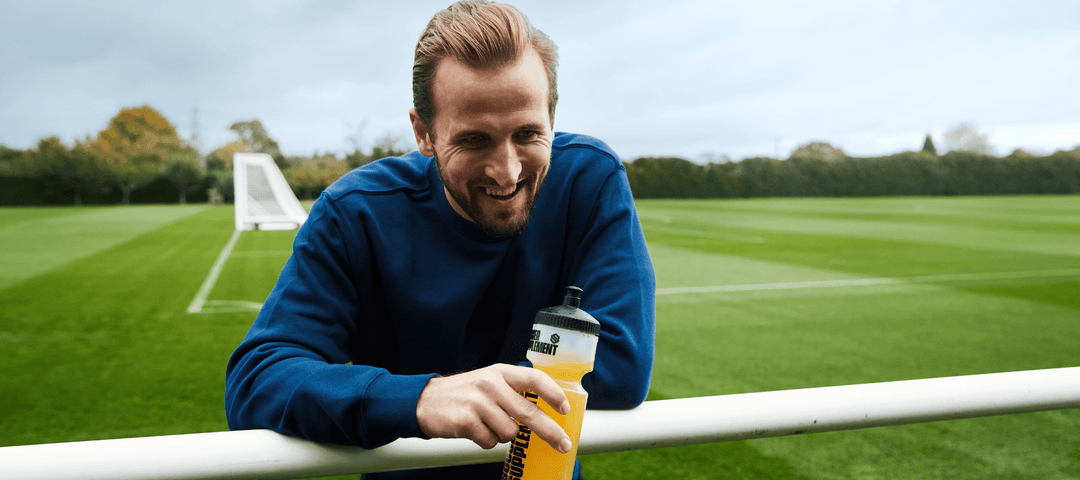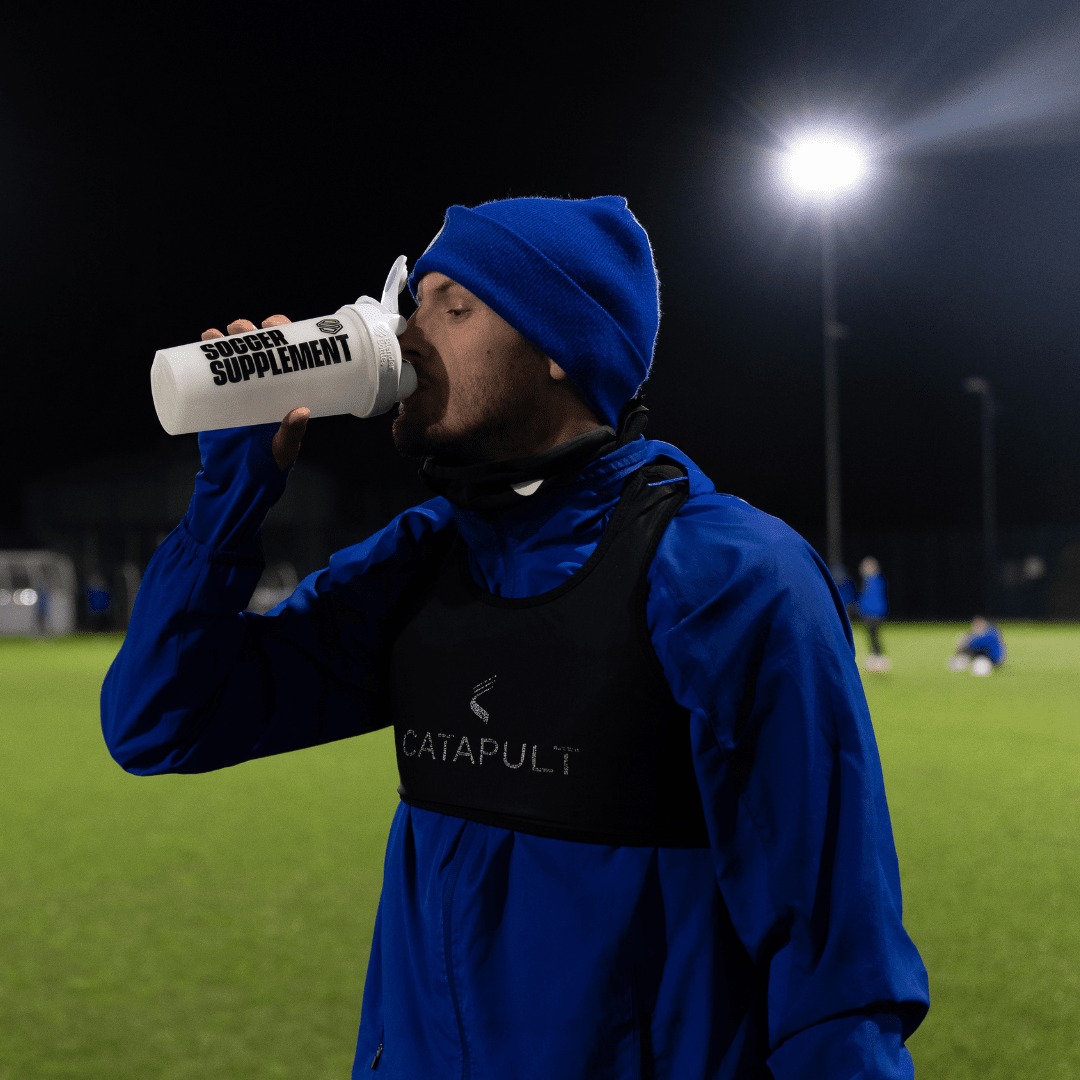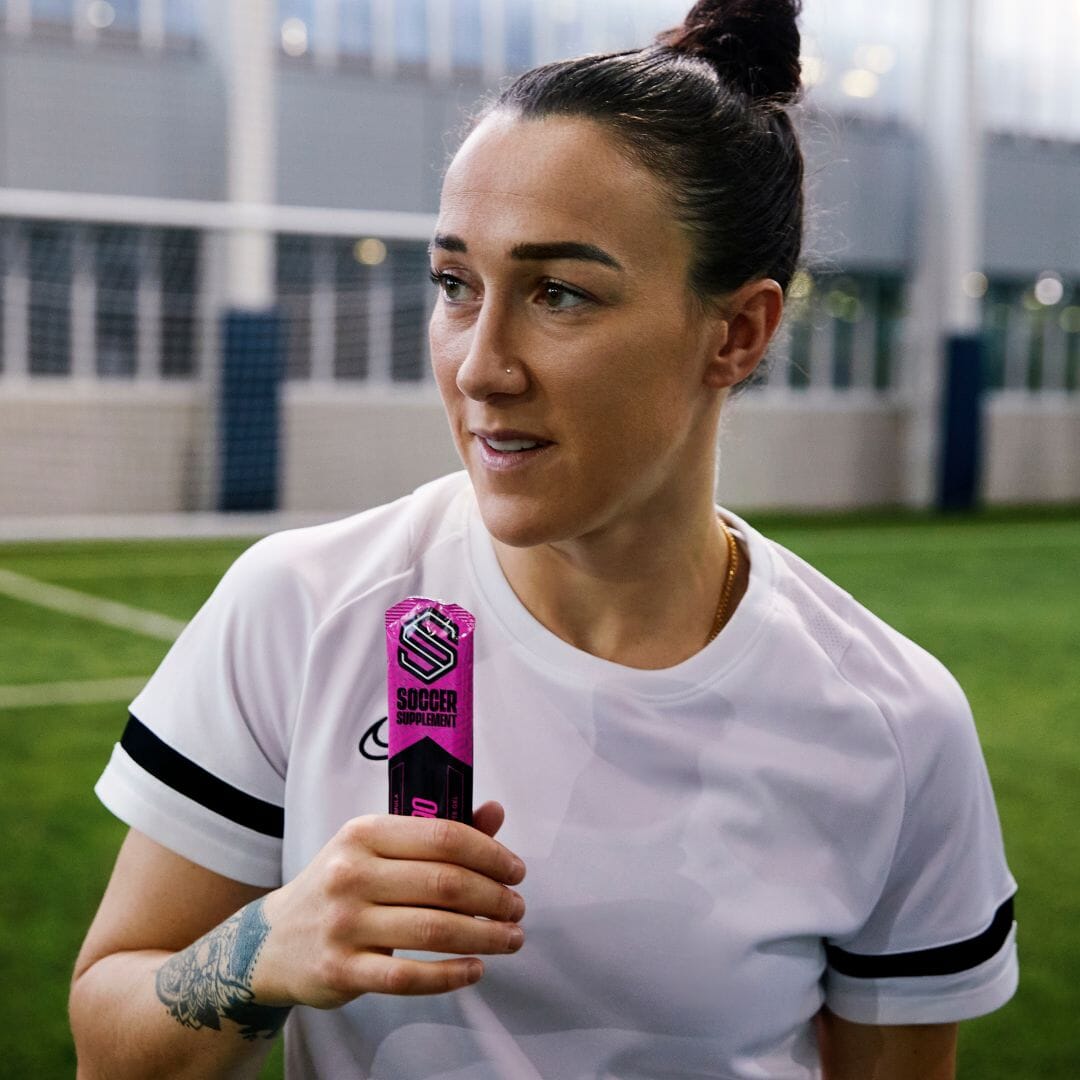Topics such as improving a footballers diet or football training are often given, quite rightly, a lot of focus when it comes to maximizing performance out on the pitch. However, one vital area that is often overlooked in football today is the importance of good hydration practices.
Numerous studies from across the globe, have identified to vital nature of being hydrated before, during and after a game, with the practices of previous generations being quickly forgotten, such as the stories of hip flasks in changing rooms during games and pints in the local pubs with fans after.
So how much do you need to be drinking?
It is recommended that you drink about 40ml of fluid per kg of body mass. This means that a 75kg/ 12 stone person would require 3 litres of fluid per day. Now if you factor the average person loses 1.1 litres of fluid in sweat during a 90 minute game, it's quite surprising to think how much fluid you actually need to take on board on a matchday and how easy it is to become dehydrated.What is Dehydration?
Dehydration is when body fluid levels drop below the optimal range. This can result in reduced aerobic capacity, power, cognitive function, impaired management of body temperature and increased heart rate and lethargy levels.
Whilst most of us know the impacts that dehydration can have on our body, fewer know that studies have shown that dehydration negatively impacts football performance. Whilst the impact on physical output is an obvious correlation, it has also been found that dehydration can negatively impact technical elements like your dribbling ability, passing accuracy and decision making.
So Should I Just Drink Lots of Water?
Consuming water only will replace the fluid lost in sweat, but it would not replace the electrolytes and thus may not be the optimal drink to consume to maximise or maintain performance.How Can You Optimise Your Hydration On Matchdays?
@soccersupplement How do the pros stay hydrated on matchdays? 👀☝️#UpYourGame #football #footballtraining #footballtiktok #fyp ♬ original sound - soccersupplement
-
Drink 500 ml of water upon waking to start the rehydration process quickly.
-
Consume enough fluid each day to create clear urine consistently, that is roughly 2-3L each day (depending on body weight).
-
Consume 1L of water or hydration drink per hour of exercise.
-
Monitor body weight before and after exercise and consume 150% of body mass loss in ml of water.
-
To rehydrate, consume fluids that provide carbohydrate and electrolytes, such as Hydrate90®, or also include protein such as Recover90®. Fluids with other nutrients or sodium can increase fluid retention.
-
Try to consume the required volume of fluid within 5-hours of completing competition.
More Information
To find out more on how to train like the pros, download our FREE four week football training guide HERE, and to learn how to provide your body with the necessary fuel to maximise your gains, you can download our FREE nutrition guide HERE.







